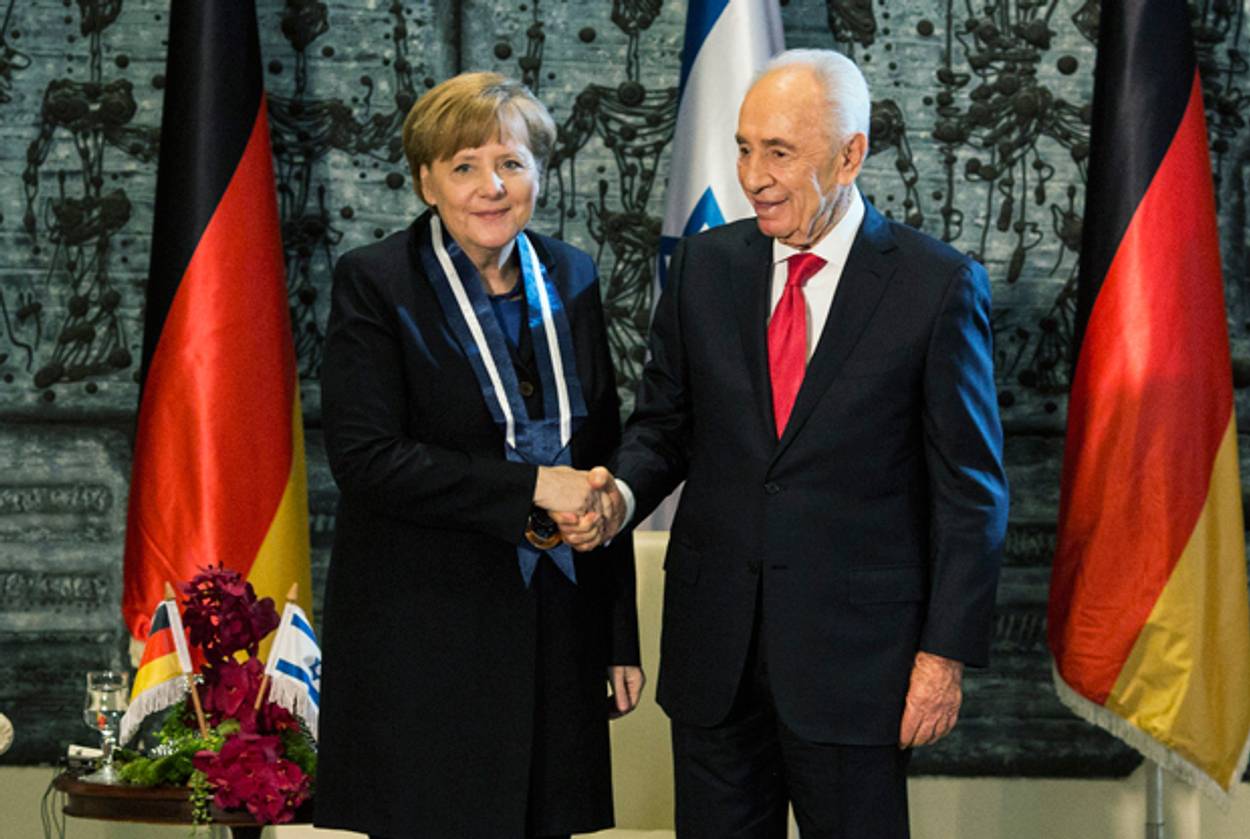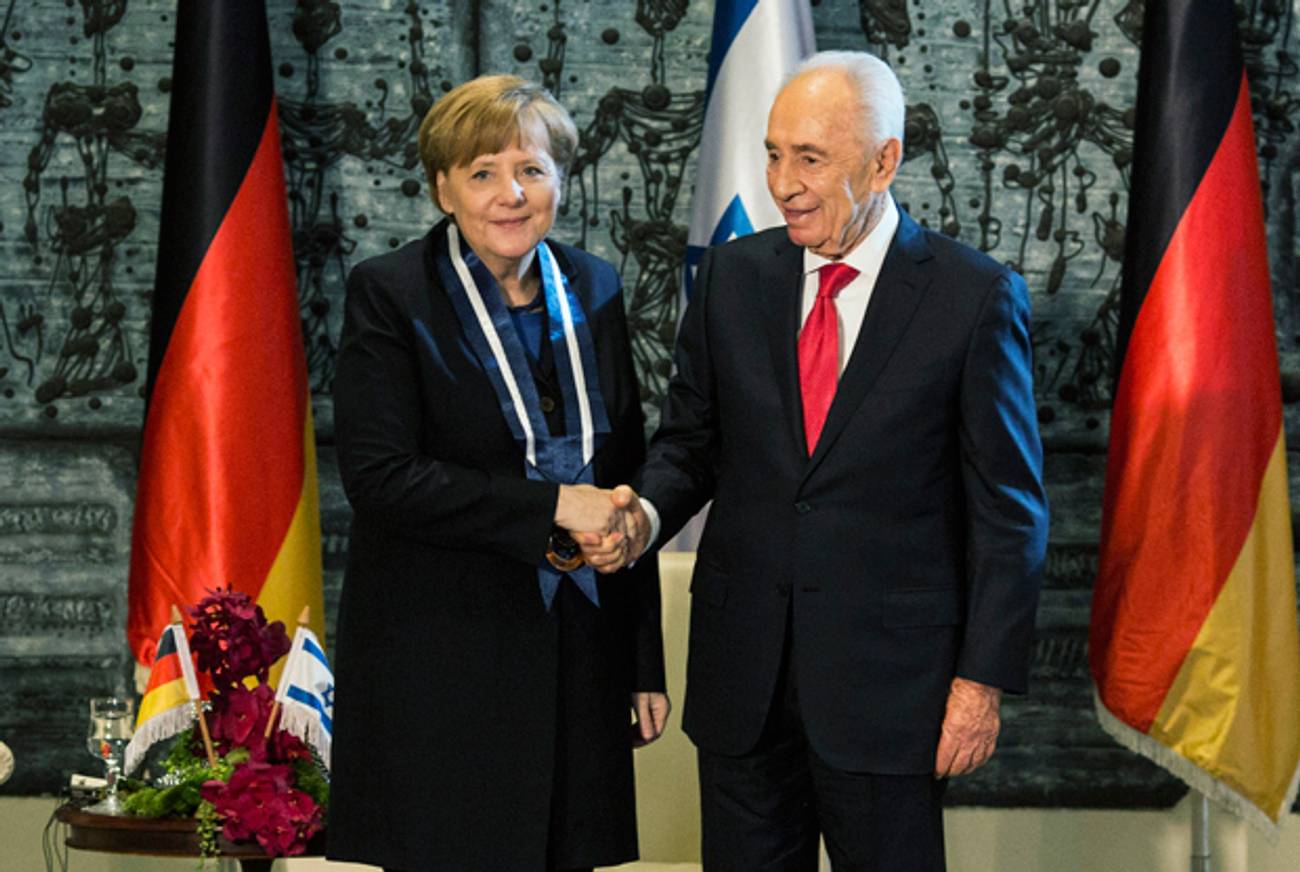Merkel Receives Israel’s Highest Civilian Honor
German chancellor calls getting the award ‘something of a miracle’




German Chancellor Angela Merkel, steely and proper as ever, was uncharacteristically emotional while receiving the Israeli Presidential Medal of Distinction from President Shimon Peres. “Receiving the highest award bestowed by another country is a great honor for the recipient,” she said, visibly moved. “But in light of Germany’s responsibility for the tremendous suffering of the Jewish people in the Holocaust, receiving this award today is something of a miracle.”
Merkel arrived in Jerusalem last night, with 16 of her government ministers in tow, for meetings with an Israeli government and Prime Minister with whom her relationship has often been described as strained (her reported scolding of Netanyahu exactly three years ago for not making even a single step to advance peace probably marked the all-time low). But the awarding of the Presidential medal, and the official platitudes that accompanied it, were a clear attempt at a relationship reboot, as they were when the medal was bestowed upon President Obama when he visited Israel last year.
Merkel, in turn, perhaps echoing Obama’s charm offensive from that visit, seemed determined today to accentuate the positive, reminding the audience at the President’s residence that the dangers faced by Israel were not abstract, but in fact quite real. The goal vis-à-vis Iran, she said, is to prevent the country from arming itself with nuclear weapons. The only note of discord was sounded earlier today, when during a press conference with Netanyahu she noted that she disagreed with his zero-enrichment demands, but pointed out that Iran is a threat to Europe as well as Israel. And her criticisms of the settlement enterprise were overshadowed by her opposition to the BDS movement.
Merkel also came bearing gifts, namely a new “working tourist” visa that allowed for several hundred Israelis in their 20s to work in Germany for 12 months—an initiative bound to be popular with many young Israelis, as Berlin has one of the liveliest Israeli expat scenes in the world. (In return, several hundred Germans will enjoy similar privileges in the Jewish state). The agreement, though, is not without its critics. Noah Kliger, a Holocaust survivor and prominent journalist, scolded those who would pursue such a visa in yesterday’s Yedioth Aharonot, reminding them that Germany is still the country whose leaders decided to wipe out the Jewish people just three generations ago. The controversy even prompted a slightly bizarre response from the Israeli foreign ministry, clarifying that the initiative was not meant to encourage yerida—emigration from Israel.
Merkel, walking briskly down the red carpet of the President’s residence despite the crutches necessitated by a recent ski accident, was most likely oblivious to all of this while accepting her honor. She was full of gratitude for the award, she told the president, who summed up the visit in typical Peres fashion. “Your visits to Israel,” he told Merkel, “are always a refreshing historic experience.”
Previous: Merkel Says Friends Don’t Spy on Friends
Tal Kra-Oz is a writer based in Tel Aviv.